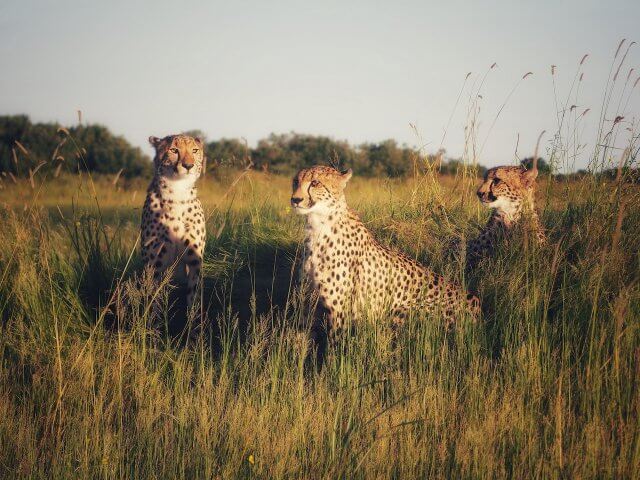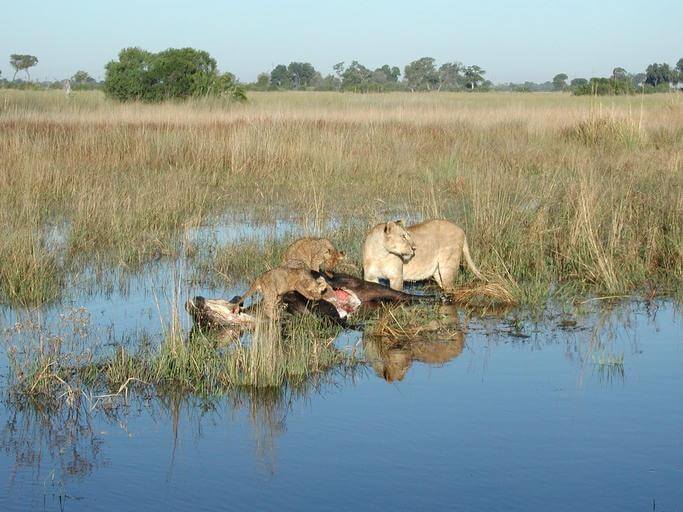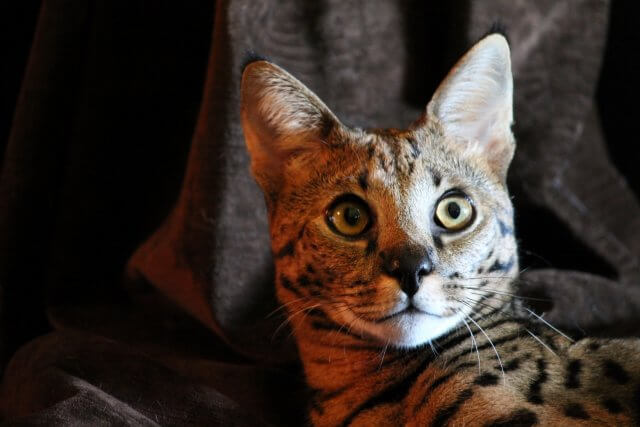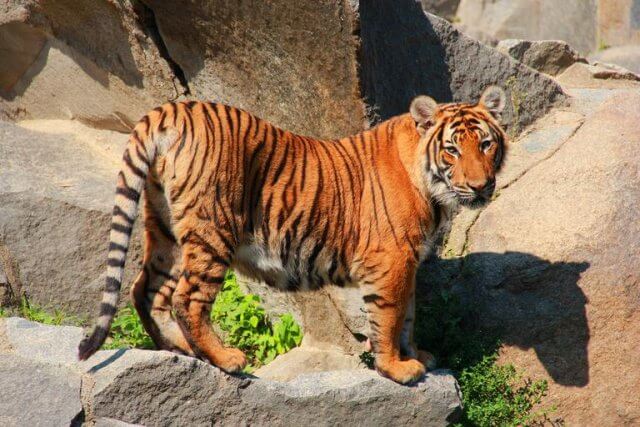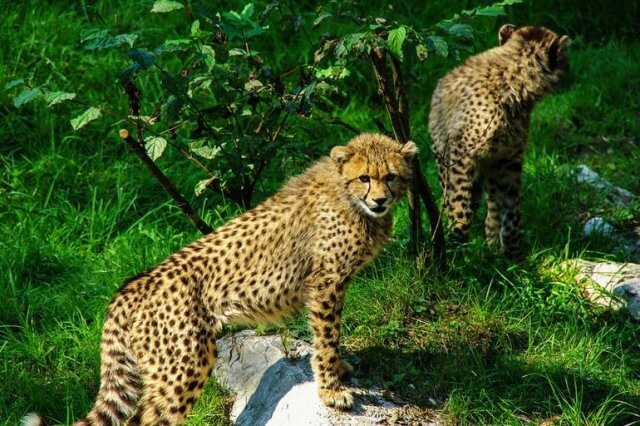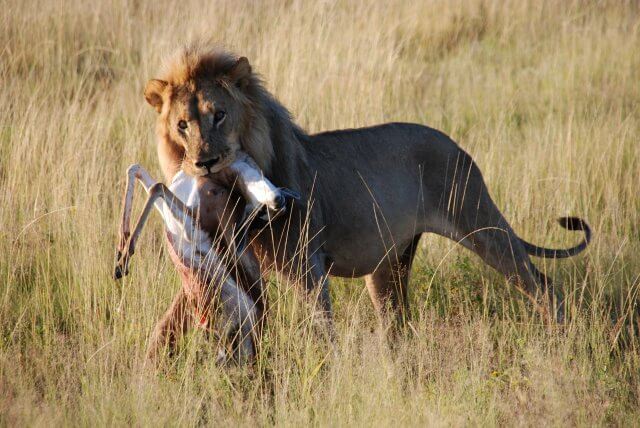Lions And Their Hunt For Prey
Lions are one of the most iconic animals in the world, and their hunting prowess is legendary. Lions are apex predators, meaning they are at the top of the food chain and have no natural predators. They are also incredibly efficient hunters, using their strength, speed, and agility to take down large prey. Lions typically hunt in groups, using a variety of strategies to take down their prey. They are also incredibly adaptable, able to hunt in a variety of habitats and climates. In this article, we will explore the fascinating world of lion hunting and how they use their skills to survive in the wild.
Hunt For Prey: How Lions Use Their Senses to Locate and Capture Prey
Lions And Their Hunt For PreyLions are powerful predators that rely on their senses to locate and capture prey. Lions have excellent vision, hearing, and smell that they use to detect potential prey.
Vision is the primary sense used by lions to locate prey. Lions have excellent eyesight, allowing them to spot potential prey from a distance. Lions can see up to five times better than humans in low light conditions, making them well-suited for hunting at night. Lions also have a wide field of view, allowing them to scan large areas for potential prey.
Lions also rely on their hearing to locate prey. Lions have excellent hearing, allowing them to detect the slightest sound of potential prey. Lions can hear the rustling of grass or the sound of an animal’s footsteps from a great distance.
Lions also use their sense of smell to locate prey. Lions have an incredibly powerful sense of smell, allowing them to detect the scent of potential prey from a great distance. Lions can also detect the scent of other predators, allowing them to avoid potential competition.
Once a lion has located potential prey, it will use its powerful body and sharp claws and teeth to capture and kill it. Lions are powerful and agile predators, allowing them to quickly and efficiently capture and kill their prey.
Overall, lions rely on their senses of vision, hearing, and smell to locate and capture prey. Lions have excellent eyesight, hearing, and smell, allowing them to detect potential prey from a great distance. Once a lion has located potential prey, it will use its powerful body and sharp claws and teeth to capture and kill it.
The Role of the Pride in a Lion’s Hunt for Prey
The pride of a lion plays an important role in the hunt for prey. A pride is a group of lions that live and hunt together. It typically consists of related females, their cubs, and a few adult males. The pride works together to hunt and protect their territory.
The pride is led by the dominant male, who is usually the largest and strongest of the group. He is responsible for defending the pride’s territory and leading the hunt. He will often scout out potential prey and then signal the rest of the pride to move in for the kill.
The other members of the pride also play an important role in the hunt. The females are typically the most active hunters, as they are smaller and more agile than the males. They will often surround the prey and drive it towards the dominant male, who will then make the kill.
The cubs also help in the hunt, although they are not as active as the adults. They will often follow the adults and learn how to hunt by observing their behavior.
The pride works together to ensure that the hunt is successful. They will often communicate with each other through vocalizations and body language to coordinate their movements. This helps them to be more efficient and effective in their hunt.
The pride is an essential part of a lion’s hunt for prey. By working together, they are able to increase their chances of success and ensure that the pride is well-fed.
The Impact of Human Activity on Lions’ Ability to Hunt for Prey
Human activity has had a significant impact on lions’ ability to hunt for prey. Lions are apex predators, meaning they are at the top of the food chain and rely on other animals for sustenance. As human populations have grown, the amount of land available for lions to hunt has decreased. This has led to a decrease in the number of prey animals available for lions to hunt, making it more difficult for them to find food.
In addition, human activity has caused a decrease in the quality of the habitat available to lions. As humans have cleared land for agriculture and development, the natural habitats of lions have been destroyed. This has caused a decrease in the number of prey animals available for lions to hunt, as well as a decrease in the quality of the habitat.
Furthermore, human activity has caused an increase in the number of predators competing with lions for prey. As human populations have grown, so too have the populations of other predators, such as hyenas and wild dogs. These predators compete with lions for the same prey, making it more difficult for lions to find food.
Finally, human activity has caused an increase in the number of lions being killed by humans. As human populations have grown, so too has the number of people hunting lions for sport or to protect their livestock. This has caused a decrease in the number of lions available to hunt for prey, further reducing their ability to find food.
In conclusion, human activity has had a significant impact on lions’ ability to hunt for prey. As human populations have grown, the amount of land available for lions to hunt has decreased, the quality of the habitat has decreased, the number of predators competing with lions for prey has increased, and the number of lions being killed by humans has increased. All of these factors have made it more difficult for lions to find food, thus reducing their ability to hunt for prey.
Conclusion
Hunt For Prey: Lions are one of the most impressive predators in the animal kingdom. They are powerful, agile, and have an impressive hunting strategy that allows them to take down large prey. Lions are also highly social animals, living in prides and working together to hunt and protect their territory. While their hunting strategies may be impressive, it is important to remember that lions are an endangered species and their numbers are declining. It is up to us to ensure that their populations remain healthy and that their habitats are protected.
Read More About Lions From Wikipedia

